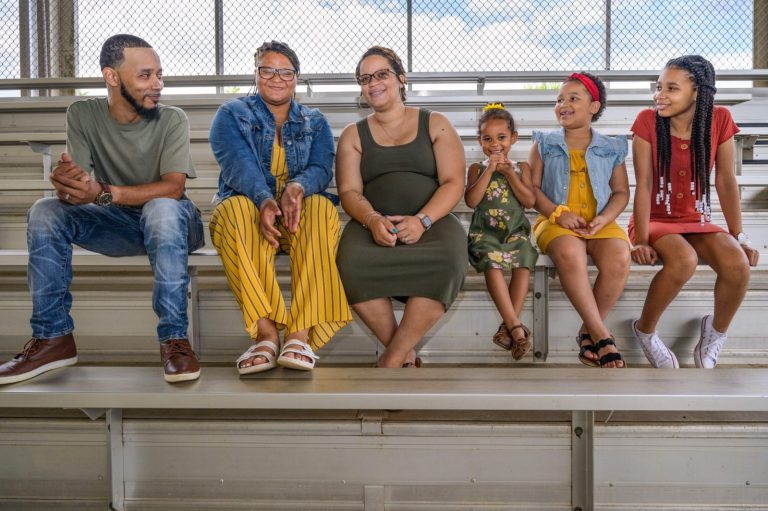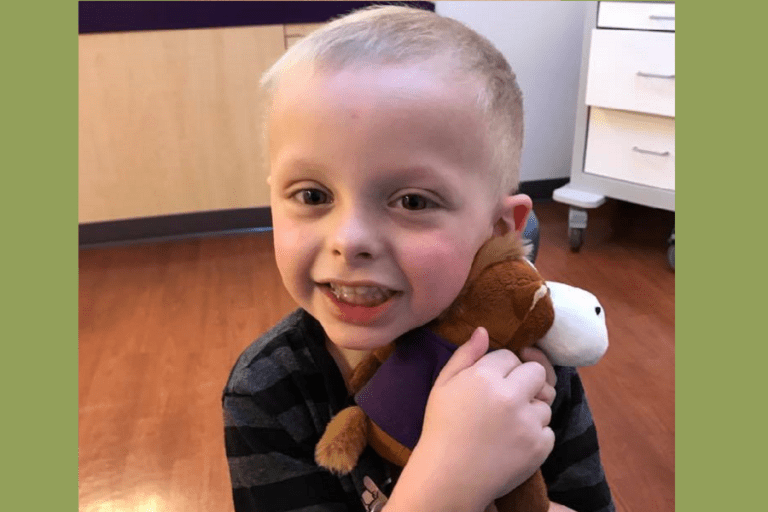Your support will help researchers examine and treat childhood cancer-predisposing diseases.
Neurofibromatosis Type 1
Neurofibromatosis type 1 (NF1) is a genetic disorder that makes children susceptible to certain tumors. Little is known about why some children with NF1 develop tumors and some do not, and there are a number of factors that may influence risk. Because the inner workings of the disease are mostly unknown, it’s difficult for doctors to predict which children might be affected by tumors.
How your donation helps:
Erin Marcotte, PhD, plans to use CCRF funding to gather NF1 patients and create a pilot study that focuses on the environmental and nutritional factors that may increase the risk of NF1-related tumors. Her ultimate goal is to gather enough data to apply for more funding from the National Institutes of Health. Her research is an important step toward discovering which factors play a role in creating subsequent cancers in kids with NF1, and in improving patient outcomes.
Fanconi Anemia
Fanconi anemia (FA) is a rare genetic disease in which proteins that help repair DNA do not function properly. Children with FA suffer from bone marrow failure and a variety of devastating birth defects. Thanks to supporters like you, two projects are underway to help alleviate the disease.
How your donation helps:
To treat FA, doctors typically transplant healthy cells from matching donors into the patient —but this form of treatment has a significant risk of fatality. Ideally, researchers would treat FA by altering patients’ genes directly in their cells. Scientists’ ability to correct genes is evolving rapidly with a new technology called CRISPR/Cas9. Using CCRF Funding, Branden Moriarity, PhD, apply this technology to correct an FA-causing gene in patient cells. His goal is to field a clinical trial to treat patients with their own cells after scientists have corrected their FA gene.
Bone marrow cells from children with FA are extremely sensitive and unable to repair a type of DNA damage caused by chemotherapy, which leads to increased leukemia and other cancers. Troy Lund, MD, PhD, will use the funding to determine how cells use a specific protein to recognize and repair this DNA damage. Researchers and doctors could then figure out how to target the protein in children with leukemia to make chemotherapy more effective.



